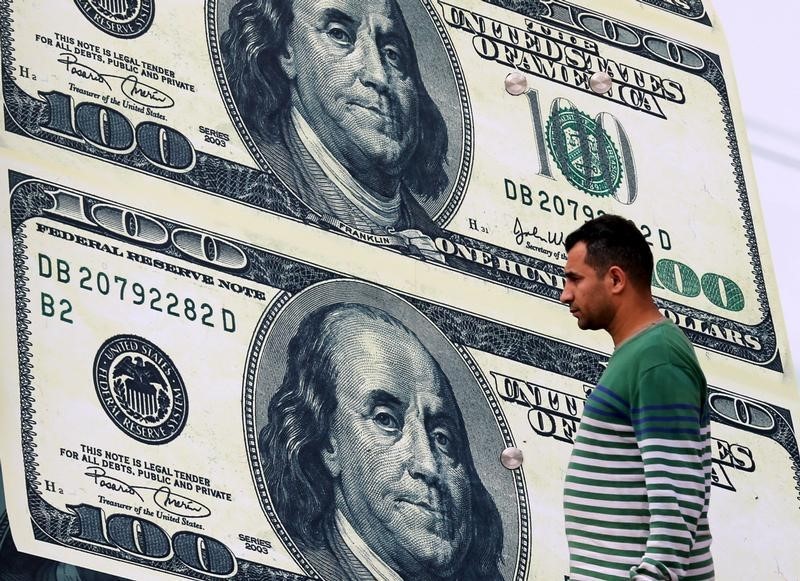Investing.com – The US dollar fell lower on Monday following US President Joe Biden’s decision to end his re-election campaign, with the euro benefiting despite a weak tone following last week’s European Central Bank meeting.
At 6:00 AM ET (10:00 GMT), the Dollar Index, which tracks the greenback against a basket of six other currencies, was trading 0.2% lower at 103.942, after posting its first weekly gain in three last week .
The dollar is retreating amid political uncertainty
The dollar has retreated following news last weekend that President Biden will no longer seek re-election, and is backing Vice President Kamala Harris as his potential replacement.
“Investors will now turn their attention to how Kamala Harris stacks up against Donald Trump in the polls – assuming she is named presidential candidate at the Democratic National Convention from August 19 to 22,” ING analysts said in a note.
The dollar had been boosted as the chances of a Trump presidency increased following Biden’s disastrous debate performance last month and questions about his age and health.
This week’s key economic data will be released on Friday, with the June personal consumption expenditure index testing market expectations that the Federal Reserve will almost certainly cut rates in September.
Economists expect inflation to have risen 0.1% for the second month in a row, which would push three-month core annual inflation to the slowest pace this year, below the Fed’s 2% target.
The euro rebounds after the ECB’s decision
rose 0.2% to 1.0893, bouncing after weakness in the wake of keeping rates steady at last week’s meeting.
Analysts pointed out that the ECB did not offer concerted pushback on high prices for a September cut at last week’s policy meeting, which remains a strong base case.
“The business confidence measurements in the eurozone, which will be released on Wednesday and Thursday, will help shape the narrative that the policy is too restrictive and could lead to a small disadvantage for the euro,” ING said.
The markets are almost expecting two ECB interest rate cuts for the rest of the year.
was 0.1% higher at 1.2931, after breaching the 1.30 mark for the first time in a year last week in the wake of the decisive election victory for the Labor Party, ending fourteen years of sometimes chaotic conservative rule.
“Some will no doubt argue that this is an abolition of the Brexit risk premium in sterling, helped by new Prime Minister Keir Starmer’s desire to work more closely with Europe,” ING said.
“While we have some sympathy for that view, we attribute sterling strength more to persistent UK inflation and limited pricing from BoE rate cuts this year, plus the dollar’s decline in July on the back of softer US price data.”
The yuan falls after a rate cut by the PBOC
In Asia, yields rose 0.1% to 7.2727, close to levels last seen in November.
The yuan’s weakness came after the People’s Bank of China unexpectedly cut its benchmark to further ease monetary policy and support the economy.
The reduction comes as China struggles with a slowing economic recovery. Concerns about this have increased pressure on the yuan.
The yuan’s recent weakness also came amid concerns about a Trump presidency, as Trump has maintained negative rhetoric toward Beijing.
fell 0.5% to 156.63, with the yen continuing to see wild swings amid speculation that the Japanese government has intervened in currency markets.


